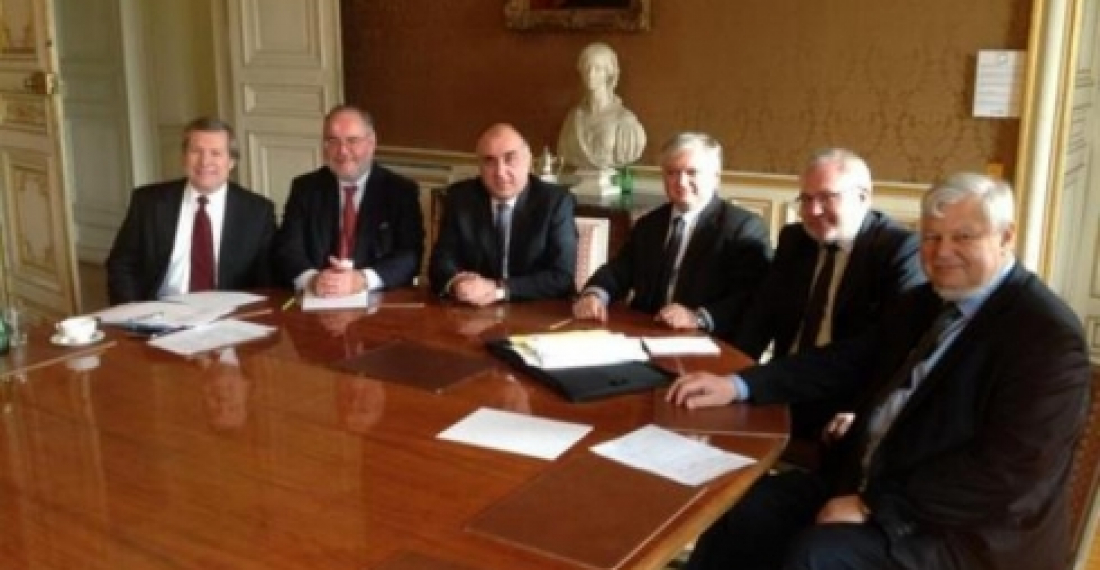The Foreign Minister of Armenia and Azerbaijan met in Paris today under the auspices of the OSCE Minsk Group co-Chair countries.
A statement by the OSCE this evening said,
"The Co-Chairs of the OSCE Minsk Group (Ambassadors Igor Popov of the Russian Federation, Jacques Faure of France, and James Warlick of the United States of America) met with the Foreign Ministers of Armenia, Edward Nalbandian, and Azerbaijan, Elmar Mammadyarov, to continue negotiations on the peaceful resolution of the Nagorno-Karabakh conflict. Ambassador Andrzej Kasprzyk, the Personal Representative of the OSCE Chairperson-in-Office, also participated in the meeting.
The Ministers and the Co-Chairs discussed substantive issues to advance the peace process, building on the November 19 summit in Vienna, which was followed by the December 5 ministerial meeting in Kyiv. The Ministers reiterated their willingness to continue working towards a peaceful, negotiated settlement.
Ambassador Kasprzyk briefed the Co-Chairs on recent developments on the border and the Line of Contact. The Co-Chairs expressed their deep concern over continued violence in the region, and stressed that recent incidents undermine negotiations and diminish the prospects for peace. They called on the sides to fully and unconditionally respect the terms of the ceasefire agreement.
The Co-Chairs plan to travel to the region in the coming weeks to continue talks with the Presidents."
The American co-chair of the Minsk Process posted a picture of the meeting on his twitter page, @AmbJamesWarlick
source: commonspace.eu
photo: The Foreign Ministers of Armenia and Azerbaijan at their meeting in Paris on Friday 24 January with the representatives of the co-Chair countries of the OSCE Minsk Process (picture courtesy of Ambassador James Warlick_







